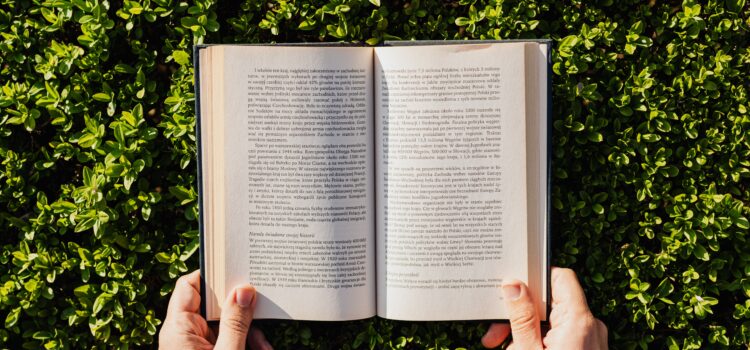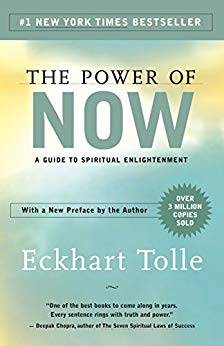

This article is an excerpt from the Shortform summary of "The Power of Now" by Eckhart Tolle. Shortform has the world's best summaries of books you should be reading.
Like this article? Sign up for a free trial here .
Are you looking for The Power of Now quotes by Eckhart Tolle? What are some of the most noteworthy passages worth revisiting?
In The Power of Now, spiritual teacher Eckhart Tolle walks you through his methods for quieting your thoughts and fears to find fulfillment through presence. He insists that we can’t find the peace and happiness we seek in anything outside ourselves.
Below is a selection of The Power of Now quotes with explanations.
The Power of Now: A Guide to Spiritual Enlightenment
In his book The Power of Now, Eckhart Tolle proposes that the main cause of unhappiness and lack of fulfillment for most people is a lack of presence in their moment-to-moment experience.
The following The Power of Now quotes highlight some of the key ideas.
“Whenever you are able to observe your mind, you are no longer trapped in it. Another factor has come in, something that is not of the mind: the witnessing presence.”
Being present starts with disconnecting with the voice inside your head. This is called “watching the thinker.” Thoughts come from your ego, making your ego the “thinker.” The part of you that can observe your thoughts without engaging in them is the “watcher,” your true self.
Try this: think, “I wonder what my next thought will be.” Wait and watch. Notice that your thoughts will likely stall for a moment while you are in this state of presence and alertness. You’ve just watched the thinker.
When you can understand that the watcher and the thinker are separate, then you can realize that you are not made of your thoughts. In moments when your mind is still and thoughts are quiet, you still exist and are still yourself. As soon as you witness your thoughts, you’ve separated yourself from them — even if only for a moment. This is a victory in itself.
“Emotions arise in the place where your mind and body meet.”
According to Eckhart Tolle, emotions are produced by repeated thought patterns created by the ego. Like thoughts, emotions are a product of the ego that distract you from the present, keep you disconnected from your true Being, and pull you further from inner peace and happiness.
To reduce emotions’ pull, practice observing them. Regularly ask yourself, “What’s going on inside me at this moment.” Thoughtfully observe your inner state, without analyzing (“I’m feeling this way because …”) or judging (“Why can’t I just let this go?”).
“In surrender, you no longer need ego defenses and false masks. You become very simple, very real. “That’s dangerous,” says the ego. “You’ll get hurt. You’ll become vulnerable.” What the ego doesn’t know, of course, is that only through the letting go of resistance, through becoming “vulnerable,” can you discover your true and essential invulnerability.”
Many people have a negative connotation of surrender, associating it with passively tolerating a situation without taking further action. However, surrendering to the Now means to stop fighting the flow of life and to accept the reality of the Now. Only when you surrender can you take productive, positive action forward—this is where true invulnerability lies.
“The pollution of the planet is only an outward reflection of an inner psychic pollution: millions of unconscious individuals not taking responsibility for their inner space.”
Throughout the book, Tolle periodically refers to the idea that humans across the globe have strayed further from presence from generation to generation, and are collectively lacking more presence than ever. Our collective lack of presence is sending negative energy into our environment and damaging the planet; environmental pollution evident around the world is an outward reflection of millions of humans’ mental pollution.
Raising collective human presence is the only hope to save our planet. Tolle believes that the whole world is coming around to this knowledge and an awakening of presence, which is encouraging for the future of the planet. But we all have to participate — it is not inevitable.
“So give up waiting as a state of mind. When you catch yourself slipping into waiting . . . snap out of it. Come into the present moment. Just be, and enjoy being. If you are present, there is never any need for you to wait for anything. So next time somebody says, “Sorry to have kept you waiting,” you can reply, “That’s all right, I wasn’t waiting. I was just standing”
There are moments in life when we feel like we are at time’s will, when it feels as if there is nothing to do but wait — whether it’s for the traffic light to turn green or for your life to make a drastic turn. There are two types of waiting, based on whether you’re using clock time or psychological time: small-scale and large-scale.
Small-scale waiting is what you do in line at the post office or DMV. This form of waiting happens in clock time, and allows you to still be present. Use these situations — like waiting to check out at the grocery store or waiting to pick your child up from school or sports practice — as opportunities to be present. Give yourself that time to simply observe the sights and sounds around you, and for those few minutes try not to let your mind wander to your to-do list or that tense conversation you had with your coworker this morning.
———End of Preview———

Like what you just read? Read the rest of the world's best summary of "The Power of Now" at Shortform . Learn the book's critical concepts in 20 minutes or less .
Here's what you'll find in our full The Power of Now summary :
- Why you feel pain from the past, and how to get rid of it
- How to be more present and stop worrying about the future
- The 8 key ways to achieve mindfulness






